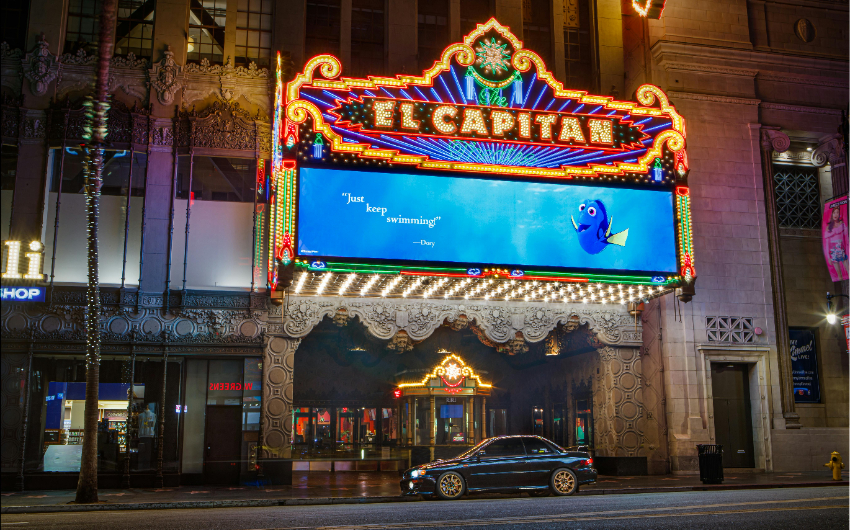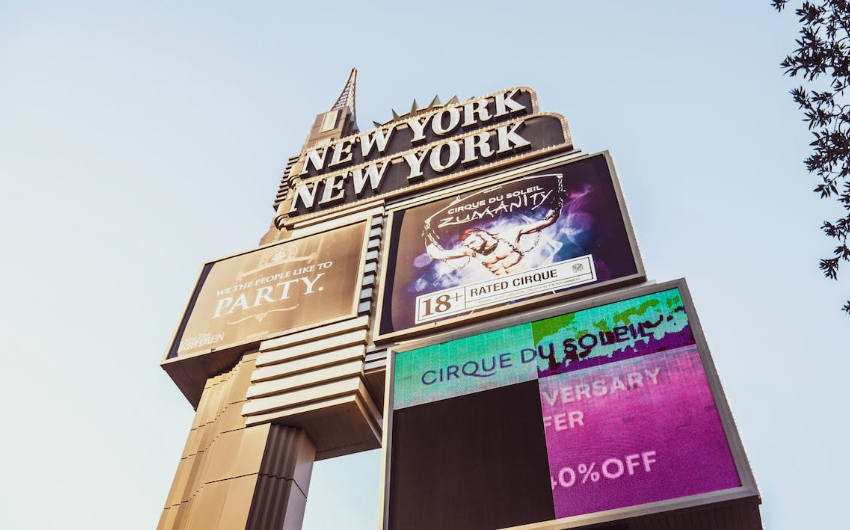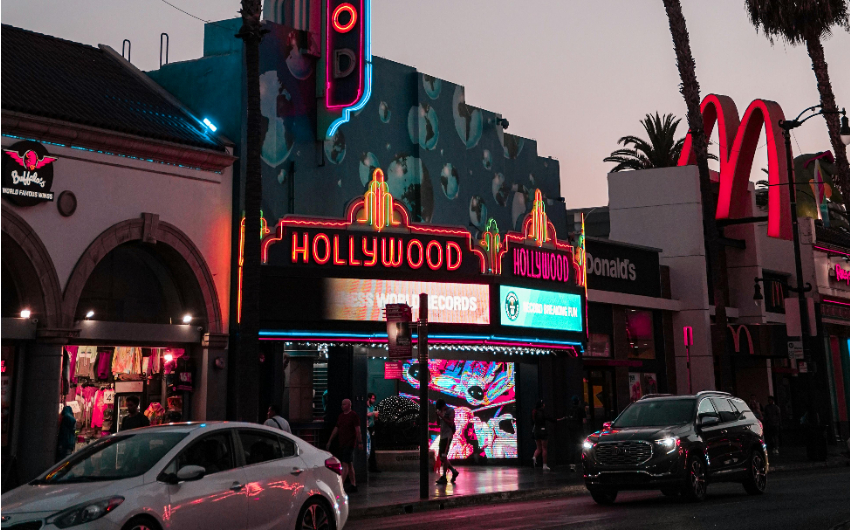LED billboards, screens, and related products are experiencing a surge in popularity. In today's business landscape, LED displays play a crucial role in facilitating communication between modern enterprises and their clientele. Their advantages, including high brightness, low power consumption, and extended lifespan, set them apart from their predecessors, such as LCD screens. It's worth noting that indoor LED displays exhibit distinct differences from their outdoor counterparts in several aspects.

Kingaurora LED displays serve as versatile communication tools, enabling businesses to engage with their clients through impressive billboards and screens. Beyond commercial use, these displays fulfill educational and awareness-building purposes. Outdoor LED screens find applications as highway billboards, in stadiums, and at outdoor events, while indoor counterparts are prevalent in places of worship, offices, conference halls, restaurants, malls, and retail outlets. LED displays also play vital roles in diverse sectors, including retail, transportation, sports arenas, corporate campuses, higher education institutions, gaming hubs, and casinos.
Kingaurora Indoor LED display screens offer seamless visuals, making them perfect for ambient lighting and shorter viewing distances. The use of LED video walls enhances indoor spaces, providing a captivating viewing experience in settings like retail stores and corporate lobbies.
In addition to standard indoor and outdoor LED displays, there are semi-outdoor screens. These can be found in open halls, under eaves, occasionally beneath sun roofs, or even under outdoor canopies. Although they provide the same ultra-high brightness as outdoor LED displays, it's important to note that these semi-outdoor screens lack resistance to adverse weather conditions.
LED Display | ||||
ID | Type | Applications | Sectors | Visual Characteristics |
1 | Indoor | Places of worship, offices, conference halls, restaurants, malls | Retail, transportation, sports arenas, corporate campuses | Seamless visuals, ambient lighting, shorter viewing distances |
2 | Outdoor | Highway billboards, stadiums, outdoor events | Large-scale events, brand advertisements | Full color, exceptionally high brightness, high color saturation |
3 | Semi-Outdoor | Open halls, under eaves, occasionally beneath sun roofs | Various settings with ultra-high brightness | Ultra-high brightness, lack resistance to adverse weather |
Contrasts Between Indoor and Outdoor LED Displays
Outdoor LED screens are predominantly employed in venues hosting large-scale events, such as for brand advertisements, due to their capability to deliver full color and exceptionally high brightness. In contrast, indoor LED screens are not suited for extensive outdoor display projects but excel in indoor applications. They boast improved spectrophotometric color and high color saturation.
This article delves into the factors that distinguish outdoor and indoor LED displays.

One of the notable distinctions between indoor and outdoor LED display screens lies in their brightness levels. The intense sunlight outdoors poses challenges for reading dim or less bright LED signs. Consequently, outdoor LED display screens incorporate numerous bright LEDs per pixel to achieve ultra-high brightness. In contrast, indoor signs, shielded from the harsh sunlight, inherently require less brightness. Outdoor displays surpass indoor LED screens in brightness, measured in units such as nits or candelas per square meter. The luminosity level determines the brightness, with higher levels indicating greater brightness.
Display Type | Waterproofing | Dust Resistance | Anti-Lightning Features | Resilience to High Temperatures |
Indoor | IP20 | Not applicable | Not applicable | Not applicable |
Outdoor | IP65 | Yes | Yes | Yes |
Outdoor LED display screens necessitate robust leak-proofing, waterproofing, dust resistance, sunlight readability, anti-lightning features, and resilience to high temperatures. In contrast, indoor LED display screens, shielded from external environmental factors, do not require equivalent protective features. Typically, outdoor LED screens are equipped with IP65 waterproofing, whereas indoor screens are designed with IP20 waterproofing levels.
Display Type | Viewing Distances | Resolution | Pixel Pitch |
Indoor | Shorter distances | Higher | Smaller |
Outdoor | Greater distances | Lower | Larger |
Outdoor LED screen displays are often observed from greater distances compared to their indoor counterparts, resulting in a lower resolution. In contrast, indoor LED screens, viewed at shorter distances, necessitate higher resolutions for optimal picture quality. The resolution, a crucial factor influencing picture clarity, is determined by the pixel pitch—the density of pixels on an LED display. Outdoor displays typically feature a larger pixel pitch and lower resolution, catering to distant viewing. Conversely, indoor displays, requiring high resolution for close-up viewing, incorporate a smaller pixel pitch.

When opting for indoor LED screen displays, various design possibilities are available, allowing flexibility in configuration to align with architectural requirements. The absence of a cabinet requirement facilitates diverse design options. Conversely, outdoor LED signs cannot be assembled piece by piece on-site. The installation process is either based on a predetermined design (such as a sign or billboard) or integrated into a building structure.
Selecting the appropriate LED display hinges on its intended placement indoors or outdoors. Consider the size of the installation area, ascertain whether remote control via a PC is necessary, and determine the minimum viewing distance. Indoor LED display screens as Kingaurora are inherently designed for seamless integration with various input sources and third-party players, ensuring easy and swift deployment. Conversely, outdoor LED screens require a robust controller for playback, typically regulated by proprietary software that also enables remote access and sign diagnostics.
Displays with increased brightness come with higher costs and greater electrical power consumption. Therefore, selecting a screen with the appropriate brightness for your requirements is crucial to avoid unnecessary expenses. Indoor LED screens without weatherproofing typically incorporate LEDs with lower light output. In contrast, outdoor LED screens, which require water resistance, utilize brighter LEDs to ensure optimal visibility.
The outdoor LED display market is anticipated to experience substantial growth by the year 2021.
All outdoor LED displays share fundamental attributes such as energy efficiency and robust durability. Governments worldwide, including those in India, China, Malaysia, and the Gulf Cooperation Council (GCC) countries, are actively promoting energy conservation initiatives. LED displays play a significant role in reducing power consumption. Additionally, these countries are developing regulatory policies to support the flourishing LED industry.
Contemporary multiplexes and shopping malls seamlessly integrate LED displays into their design, considering them a vital component. Outdoor LED displays, such as Kingaurora,featuring dynamic content with accompanying audio, are particularly captivating. Companies allocate substantial investments in LED displays to captivate their customers' attention effectively. The large screens showcasing vibrant images accompanied by powerful sounds consistently attract the gaze of mall visitors.
The surge in real-time advertising has heightened the demand for outdoor LED screens. Advertisers meticulously track their clients' preferences, market trends, and consumer responses to the displayed messages, allowing them to dynamically adjust the content as needed.

Video walls find diverse indoor applications, with early adoption evident in transportation hubs such as airports, bus terminals, and subways. More recently, these walls have gained popularity in settings like shopping malls, retailers, hotels, casinos, as well as museums and galleries.
Durable outdoor LED walls with high brightness are engineered to present information in a visually compelling manner, even in challenging outdoor conditions such as intense heat, rain, and dust. In contrast to traditional displays, these video walls offer extensive customization options in terms of shape and size, ensuring daytime visibility even under direct sunlight.
As one of the top indoor and outdoor LED display screen manufacturers in the industry, if you have any needs, please contact us. We believe Kingaurora can meet your requirements.
1.Top 5 led screen manufacturers in world
2. Custom LED Display Screen of any Size and Shape
3. How many colors can an LED display

3th Building,Gaosite Zone Pingshan
New District, Shenzhen

sevice88@kingaurora.com
3th Building,Gaosite Zone Pingshan
New District, Shenzhen